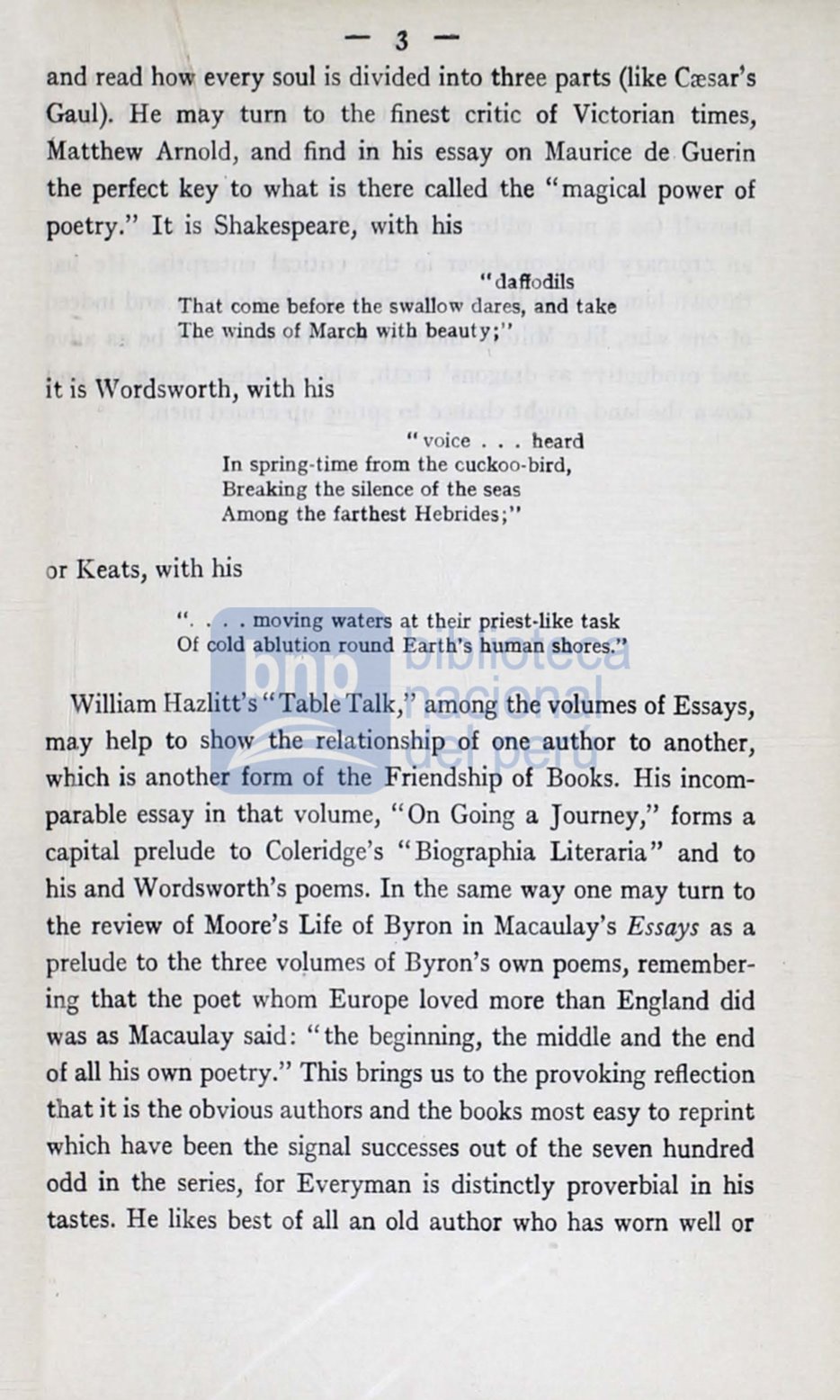

-
3 -
and read
ho~
every soul is divided into three parts (like Cresar's
Gaul). He may turn to the finest critic of Victorian times,
Matthew Arnold, and find
in
his essay on Maurice de .Guerin
the perfect key ·to what is there called the "magical power of
poetry."
It
is Shakespeare, with his
"daffodils
That come before the swallow dares, aod take
The winds of March with beauty;"
it is Wordsworth, with his
" voice ... heard
In
spring-time from the cuckoo-bird,
Breakiog the sileoce of the seas
Amoog the farthest Hebrides;"
r Keats, with his
" . . .. moving waters at their priest-like task
Of cold ablut¡oo rouod Earth's human shores."
William Hazlitt's "TableTalk," among the volumes of Essays,
may help to show the relationship of one author to another,
which is another form of the Friendship of Books. His incom–
parable essay in that volume, "On Going a Journey," forros a
capital prelude to Coleridge's "Biographia Literaria" and to
his and Wordsworth's poems.
In
the same way one may turn to
the review of Moore's Life of Byron in Macaulay's
Essays
as a
prelude to the three voiumes of Byron's own poems, remember–
ing that the poet whom Europe loved more than England did
was as Macaulay said: "the beginning, the middle and the end
of all his own poetry." This brings us to the provoking reflection
that it is the obvious authors and the books most easy to reprint
which have been the signa! successes out of the seven hundred
odd in the series, for Everyman is distinctly proverbial in his
tastes. He likes best of ali an old author who has wom well or
















